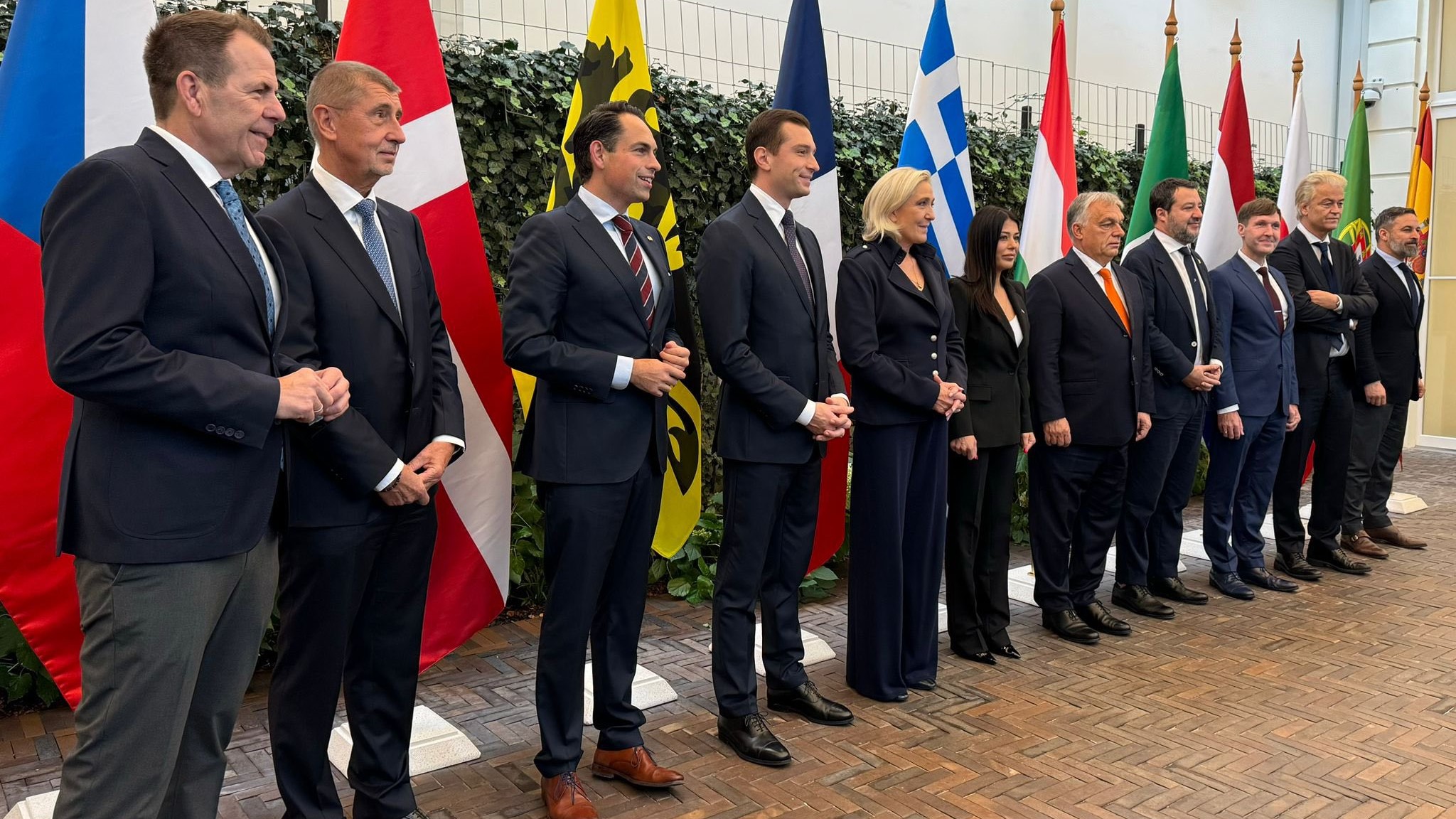The creation of Patriots for Europe was announced on 30 June and the new group was officially formed on 8 July 2024. This establishment of the new group was prompted by the need of a new course in European politics, as evidenced by the discontent of a large number of Europeans.
If we look at the 2024 European parliamentary election results, we see that over 18 million citizens voted for change. They demand a different Europe and a new direction in European politics. This should come as no surprise: in the past ten years—especially the last five—many of the EU’s major strategic decisions have proven to be major failures.
What happened then? In an alternative reality, following the European elections, Brussels, having heard the voice of everyday citizens, entered a state of deep reflection, accepting the results of the elections, and accordingly ensured that top positions are also allocated to those who had given words of warning early on. The representatives of critical thought were treated with constructive criticism, and in the spirit of bottom-up democracy, the EU institutions pledged to stand at the forefront of democratic change.
But the reality is that the walls of the bubble proved thicker than ever before. Brussels refused to acknowledge citizens’ call for change. In fact, the results of the elections had an opposite effect, paving the way to a panic-fuelled power pact seeking to cement the status-quo, reflected by a discriminatory allocation of top positions both within the EP Bureau and the bureaus of individual committees. In 2024 the will of millions of European citizens found itself locked outside the so-called European house of democracy.
Of course, if it is becoming increasingly difficult to have a say on the direction of Europe from the outside; one must work to change it from within. This is the mission of the Patriots, who believe that the will of citizens cannot be simply ignored—rather the opposite, it holds the very key to unlocking Europe’s true potential.
‘In 2024 the will of millions of European citizens finds itself locked outside the so-called European house of democracy’
As painful as it may be for some, it’s time to admit that in response to Brussels and European citizens growing ever farther apart, a powerful, bottom-up right-wing vision has emerged, supporting a pro-family, anti-migration and pro-peace Europe. Patriots are on the side of change, peace, and order, seeking to build a strong Europe of strong nations. They believe in cooperation based on mutual respect, and an EU which protects its borders and preserves its cultural identity, respecting traditional differences between its nations. No, they are not Eurosceptics—they simply believe that the European Union deserves a chance to finally be true to itself.
The Patriots offer an authentic democratic alternative in overcoming the existing leftist-centralist hegemony, and in a promising way: it is unprecedented in the history of the European Parliament that so many right-wing, conservative parties could form such a large group in such a short time. They started as Central European, yet very quickly became a pan-European patriotic cooperation. And this is only the beginning.
The success of the Patriots has significant implications: a right-wing shift in European Parliament decision-making can influence not only broad political issues but also specific policy areas. A new Europe could be on the horizon. Which leads us to the so-called cordon sanitaire. An expressionthat carries a dehumanizing connotation.And frankly, cordon sanitaire it is just a pompous expression for a more extreme, institutionalized form of cancel culture.
The Brussels elite reacted to the voice of European citizens with fear, and for a good reason. They know that the Patriots will soon become unavoidable in European politics. Nevertheless, in my sixteen years of working in the EP, what transpired this summer is to-date the most blatant disregard for the will of some 20 million European voters excluding the third-largest bloc from leadership roles and working groups. The cordon sanitaire clearly violates the European Parliament’s commitment to proportional representation, as enshrined in the d’Hondt method, which ensures that leadership roles are fairly distributed according to election results. Frankly, cordon sanitaire it is just a pompous expression for a more extreme, institutionalized form of cancel culture.
Even the Rules of Procedure of the EP stipulate that the‘diversity of Parliament must be reflected in the composition of the bureau of each committee’ and that gender balance shall be ensured throughout the bureaus. The socialist, liberal, and green coalition in the European Parliament is so determined to silence the voices of European citizens that they throw their own principles of proportional representation and Rules of Procedure out the window, even casting aside their much-touted commitment to gender equality.
Increasingly, the European Parliament mainstream political groups only observe their own rules when it benefits their personal agenda. This is cherry-picking at its finest, disregarding core democratic values, particularly the rule of law.
‘The cordon sanitaire is an assault on European democracy and the rule of law’
Hungarians had hoped that the newly formed European Parliament would finally move past the practice of stigmatizing those whose democratically elected positions differ from the Brussels mainstream. Instead, the Brussels elite decided to welcome the election results with blatant anti-democratic tactics, dismissing the political significance and representation of millions of European citizens through a legitimately emerging political force. The cordon sanitaire is not just an attack on millions of European voters—it is an assault on European democracy and the rule of law.
It shatters long-standing parliamentary traditions respected by national parliaments. And yet, the European Parliament is quick to lecture Member States on alleged breaches of the rule of law. Perhaps it’s time those critics took a hard look in the mirror. The Hungarian National Assembly ensures the fair and proportionate representation in its committees and other positions for all the parties present in the National Assembly, opposition included. How would the EU—especially the European Parliament—react if it was otherwise? The hypocrisy is evident: the cordon sanitaire is nothing short of a double standard. One thing remains certain: if Brussels needs a lesson on the rule of law, Hungary’s doors will be open.
Related articles:








